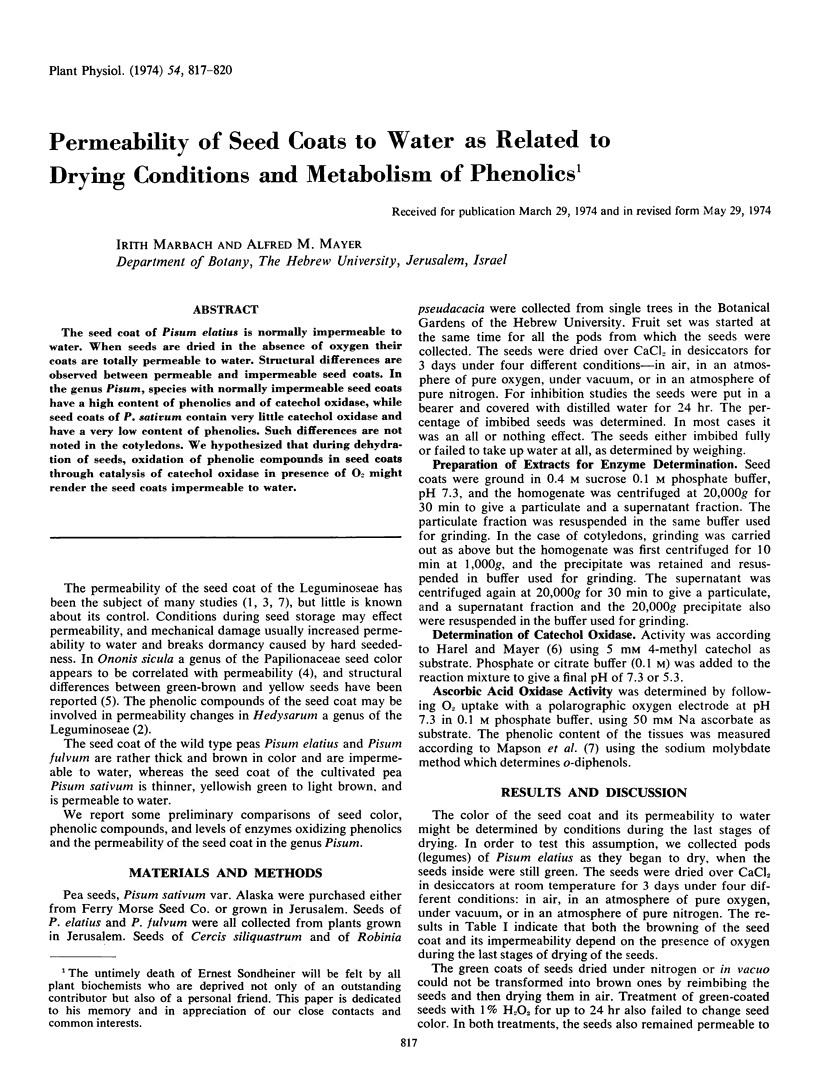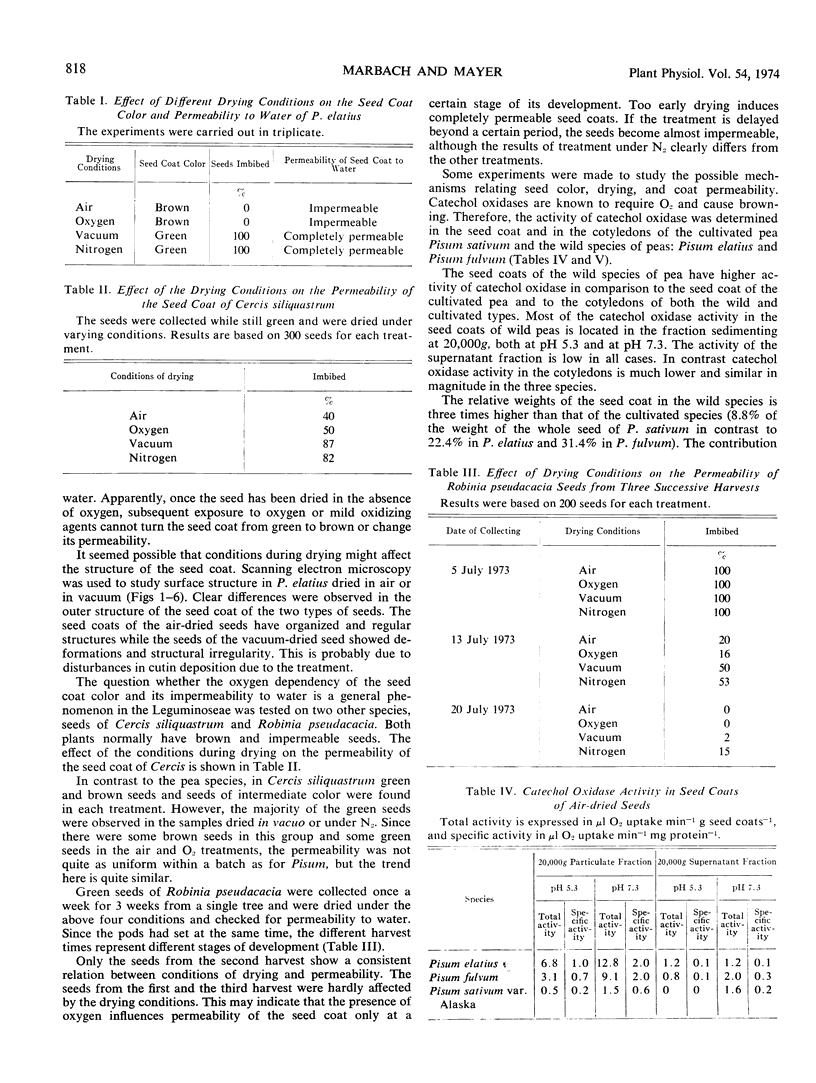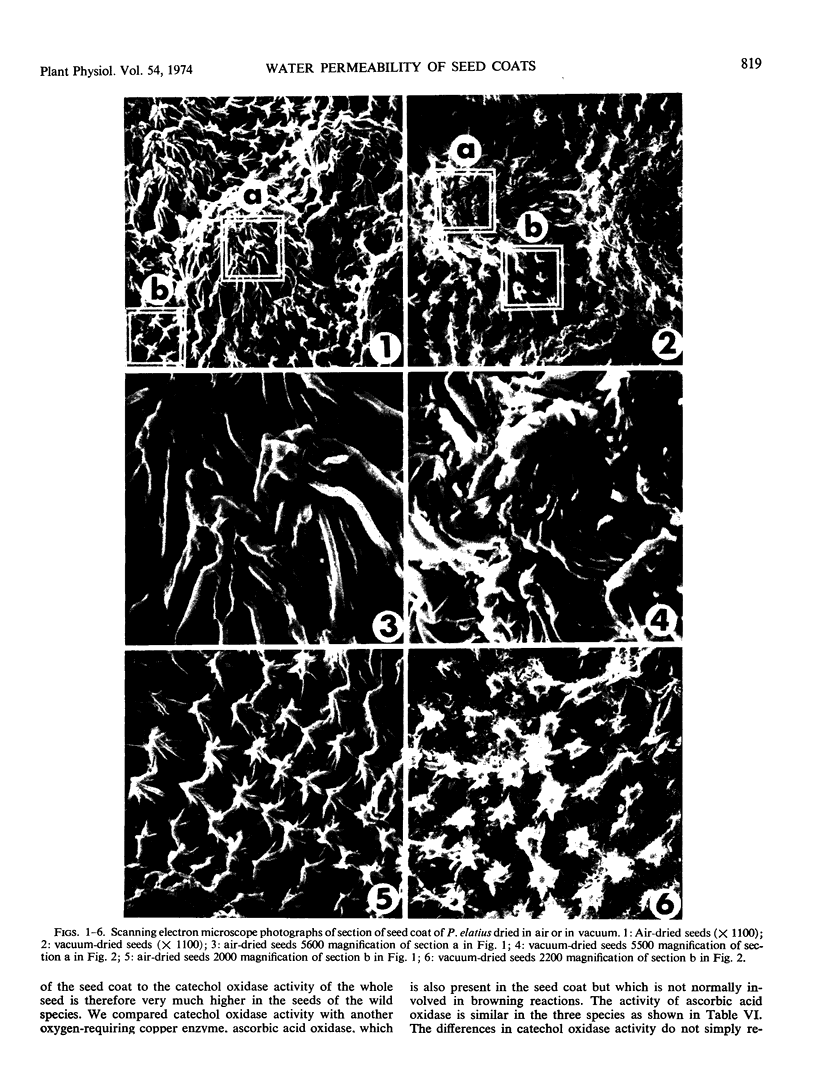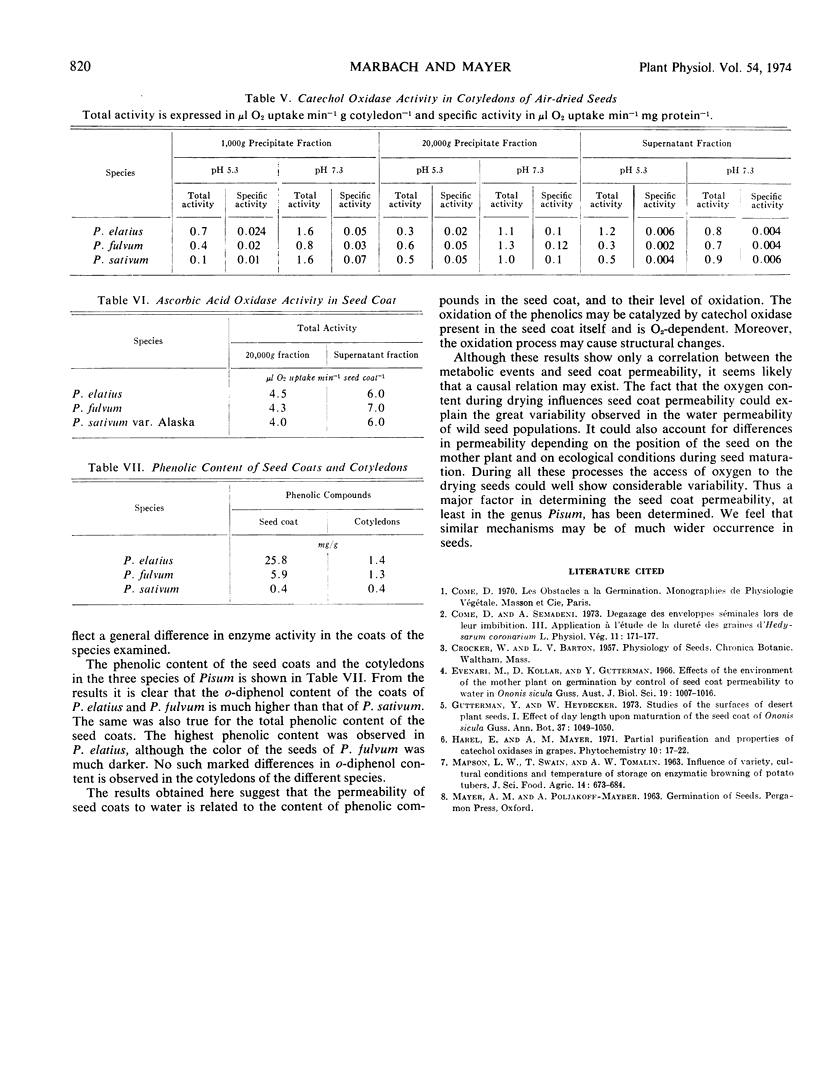Abstract
The seed coat of Pisum elatius is normally impermeable to water. When seeds are dried in the absence of oxygen their coats are totally permeable to water. Structural differences are observed between permeable and impermeable seed coats. In the genus Pisum, species with normally impermeable seed coats have a high content of phenolics and of catechol oxidase, while seed coats of P. sativum contain very little catechol oxidase and have a very low content of phenolics. Such differences are not noted in the cotyledons. We hypothesized that during dehydration of seeds, oxidation of phenolic compounds in seed coats through catalysis of catechol oxidase in presence of O2 might render the seed coats impermeable to water.
Full text
PDF











